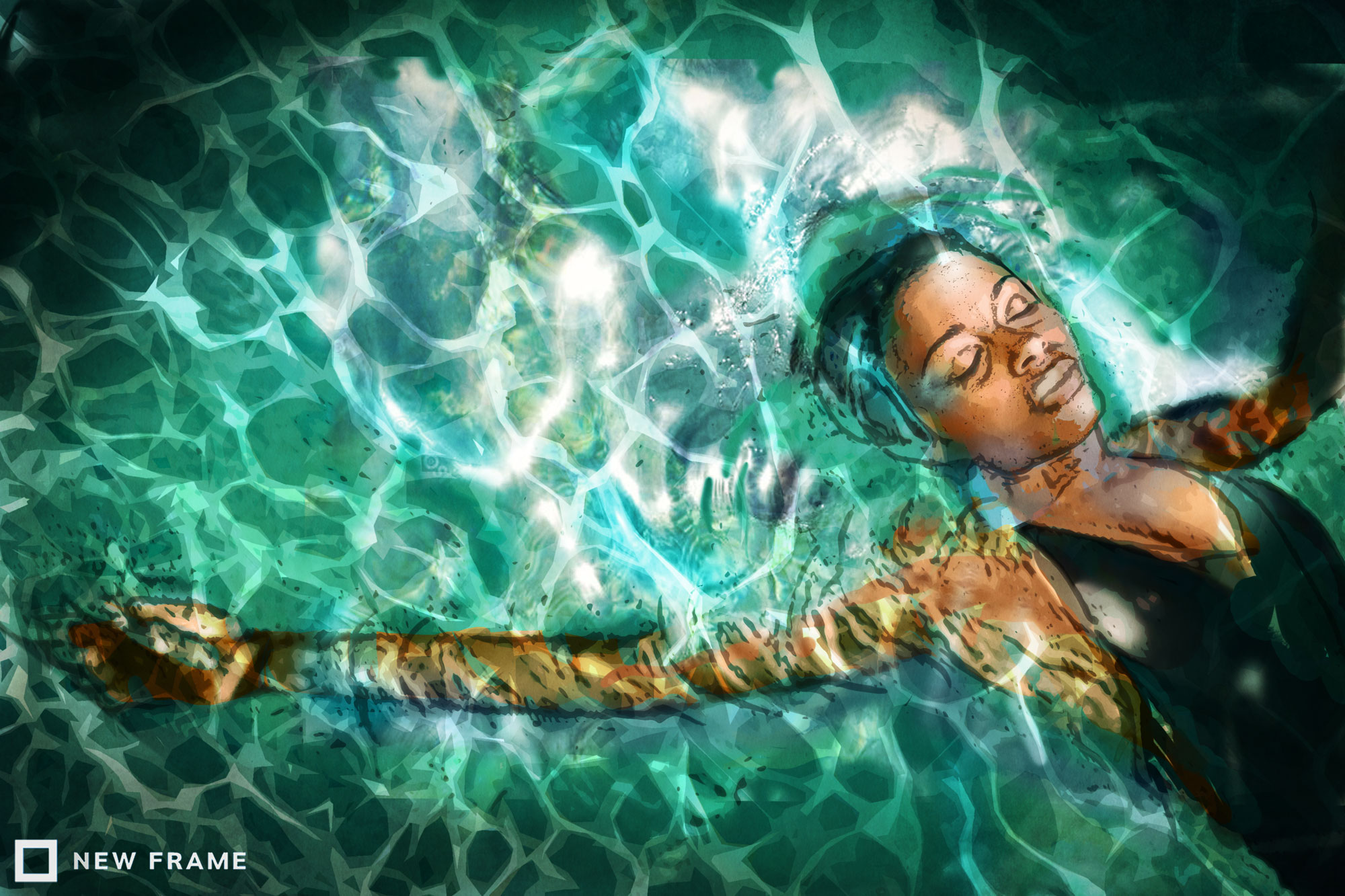The missing black swimmer
The athletes who did the Capital K open water swim at Midmar Dam in early December were true to stereotype, but didn’t show the real story of black swimmers in South Africa.
Author:
16 December 2019

I heard a few cheers, saw many smiles and felt shivers from my neck to my toes as I wobbled out of the water and across the finish line. I had just completed a 3km swim at the Midmar Dam in the Capital K open water swim, in the misty midlands of KwaZulu-Natal.
As if to both console and congratulate myself, I thought of American non-fiction writer Margot Lee Shetterly saying, “Sometimes, she knew, the most important battles for dignity, pride and progress were fought with the simplest of actions.”
I had finished the race one breath at a time.
With no formal open water training, I had naively placed myself in a starting position that was more towards the front of the pack than initially estimated and I was being outpaced embarrassingly by the leaders. Less than 1km into the race, my chest was on fire.
With the gap between me and the swimmer in front of me widening, I seriously contemplated quitting. If I wasn’t going to finish 3km, would it matter if I quit at 1km or 2km? But after a brief pause to re-evaluate my speed and strength, I realised that with the waves crashing into me, the only way I was going to finish the race was one breath at a time. One metre at a time.
Related article:
I was the last swimmer to finish the race.
And yet, there is no official record of me being in that murky water for almost two hours. I had taken too long. I participated, I finished, I was just not counted. Like many of South Africa’s black swimmers.
Challenging stereotypes
I often hear black people say that we don’t swim. As if there is a genetic predisposition to fearing water or being unable to float. There isn’t.
Black people can swim.
After spending a few days in Durban in preparation for the swim, I saw many black people at the beach and in the choppy ocean water. Many black children wore their smiles and swimsuits proudly at uShaka Marine World. There was even a pool party hosted by black people at my accommodation venue.
Black people do swim.
In my childhood, my friends and I would have birthday parties at the public pool and spend the entire day swimming and snacking. And yet, when I swam my first Midmar Mile in 2009, none of those friends came with me. I was the only black girl among 181 from Eunice High who swam that year.
Related article:
And although the number of black swimmers is increasing in the country, there is still a perception that black people don’t swim, as if those that do, don’t count.
Raising the numbers
The numbers of those that do will keep increasing as avenues to teach children how to swim become more accessible and affordable to all. Today there are 34 sites countrywide that collectively offer more than 80 swimming lessons to children during December with Swimming South Africa’s Learn to Swim initiative. Even though most of these lessons are geared towards water safety and basic swimming skills, they can serve as simple actions in the battle of progress for competitive black swimmers.
Of the eight South African swimmers who competed in the Youth Olympic Games in Buenos Aires, Argentina, in October 2018, seven were white. This demographic was mirrored in the Capital K swim where eight of the top 10 swimmers to finish the 3km race were white. But the winner, Leshen Aniston Pillay, was black.
When congratulating the team ahead of the Youth Olympics, Sascoc president Gideon Sam wished the team well by saying he was “confident that this team will do the nation proud by showcasing our rich sporting talent”.
But South Africa’s swimming talent is poorer for not having more black competitive swimmers.
Black child, keep swimming. One breath at a time. Soon, we’ll win the race.


